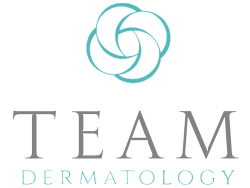Are you tired of hearing uncalled advice on how to make your oily skin better? Or you might think that drinking much water will rehydrate your skin? False! It’s time to debunk some common skincare myths.
Let’s get our facts straight and learn what’s right for your regimen.
WHAT CAUSES OILY SKIN?
Have you ever thought about what causes oily skin?
Oily Skin is the overproduction of sebum, an oily, waxy substance from sebaceous glands. Sebum isn’t all bad as it keeps the skin healthy and hydrated. However, an excessive amount of sebum can lead to clogged pores, acne, and oily skin.
Finding the solution that fits your skin that is less of a myth and more of a fact can be tiring and confusing. Here are some myths about oily skin that might have seemed to be accurate but are false.
Let’s pop that myth bubble!
5 MYTHS ABOUT OILY SKIN BUSTED
1. Don’t use moisturizer: You must have received this unsolicited advice from almost everyone you know, even though they might not have oily skin themselves. It’s a myth. Please do not believe it.
Using moisturizer will help your skin retain hydration and produce less oil. Use moisturizers that are gel or water-based as they absorb into the skin quickly without creating an oily film on the skin.
2. Keep your skin squeaky clean: Another big myth about the world is that you must aggressively cleanse if you have oily skin and keep it squeaky clean.

Oily skin needs balance. Overdrying it using healthy chemical-based products or high alcohol content toners will strip your skin of the natural sebum and lipids.
That will result in a triggering cycle of dehydration and irritation, leading to more acne and oily skin.
Use products that are mild and won’t strip your skin of its natural protectants. Avoid skincare products with alcohol, and be consistent with your skincare routine.
Keep your floor squeaky clean, not your skin!
3. Fatty foods make your skin oily: Nope, Again!
Fatty foods are worst for your health but not primarily the cause of oily skin. That’s not how the skin works—consuming high dairy, sugar, and oily food triggers an inflammatory response in your body that causes breakouts and blackheads.
But nothing you eat will affect the oiliness of your skin immediately.
Oily skin has more to do with hormones than with consumed food. There is not enough research on the back claims of high-fat diets being responsible for oily skin.
Some dermatologists even flat out refuse the connection.
However, maintain a healthy and balanced diet for the happiness of your skin. Eating good food makes your skin healthy and glow while keeping acne at bay.
Who doesn’t love clear acne-free skin, right?
4. Using sunscreen is bad for oily skin: Don’t believe everything you read and hear.

It is all about choosing products with the right ingredients that will suit your skin. Exposing your skin to the sun without having a protective layer of sunscreen will damage your skin while causing premature aging as well as freckles/blemishes.
Use a water-based sunscreen that does not contain heavy oil-based ingredients leading to clogged pores or breakout.
5. Oily skin means acne-prone skin: It’s easy for people to assume oily and acne-prone skin is similar to one another. But that’s not true.
Excessive oil can cause acne, but many other factors such as poor hygiene, food consumption, dirt, and pollution are the leading factors to breed acne.

You can prevent acne by cleansing your skin twice a day, not touching your skin with dirty hands, and avoiding fatty food that can be heavy on your skin.
There are endless myths about oily skin out there, which can make this journey frustrating and stressful. The key here is to do what YOU think is best.
If you are still lost and need a guiding hand to walk this journey with you, we will always be there for you. TeamDerm is here to solve all your skin problems and give you the healthy glowing skin you deserve.

